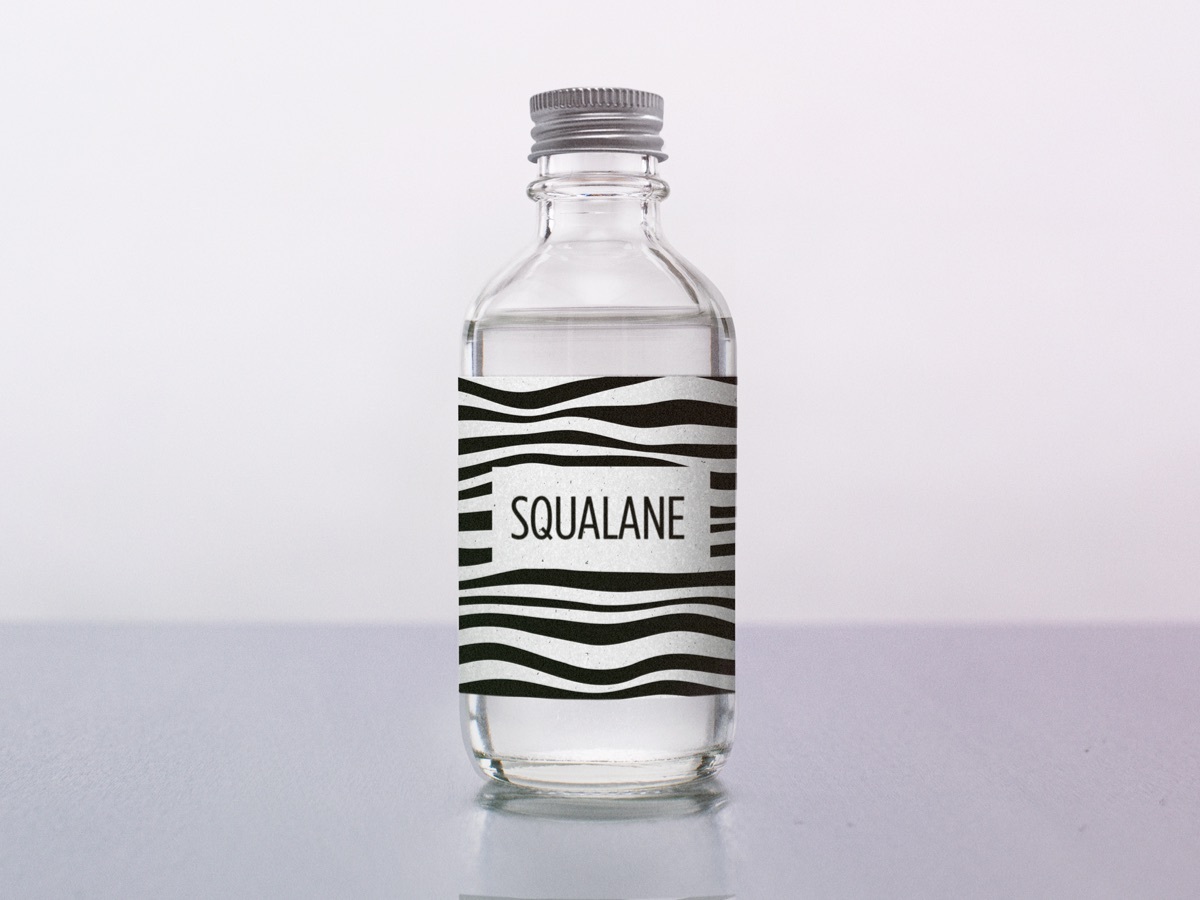
Disability Pride Month: Removing Barriers and Amplifying Voices
learn more
Squalane is one of Amyris’ flagship sustainable ingredients, used widely by the leading cosmetics companies across the world in everything from makeup to skincare to haircare.

Today, Amyris supplies over 50% of the global Squalane market, ensuring a clean, sustainable, and ethical source for one of the most in-demand ingredients. While most of today’s Squalane is now produced via sustainable fermentation, it wasn’t always like this.
The History of Squalene
To understand the impact of Amyris’ sustainable Squalane, let’s first dig into the history of Squalene, one of the main, naturally occurring components of the skin surface lipids that moisturizes the skin and protects it from the environment. Squalene is the body’s natural emollient, moisturizing the skin and preventing trans-epidermal water loss. Newborn babies are all born with a high concentration of Squalene in the skin, but this reserve depletes with age.
Because of Squalene’s superior function as an emollient and its diminishing natural presence in the skin, it has long been sought after as a cosmetics ingredient in beauty and skincare products.
In 1910, Squalene was discovered in shark liver oil and so began the decades-long practice of sourcing Squalene from sharks. Squalene harvesting has contributed to many shark species becoming endangered and has left a lasting environmental impact on marine ecosystems. An estimated 3,000 sharks are required to produce just under 1 ton of Squalene and up to 2.7 million deep-sea sharks per year were killed to meet the global demand for Squalane in the cosmetics industry alone.
Following environmental criticism, the cosmetics industry explored another source of Squalene with a lower environmental footprint – olives. Squalene can be extracted from the olive pulp, skin, and pits, however, is more expensive than shark-derived Squalene, the extraction process is inefficient, and it has a much lower purity profile. While olive-derived Squalene offered hope for a potential solution, it was ultimately not able to fully replace shark-derived sources due to cost, purity, and consistency issues.
An Opportunity for Bio-Based Production
While the industry struggled to find a source of Squalene that was sustainable, ethical, effective, and economical, Amyris saw an opportunity to apply its technology for engineering biology to solve a global sustainability challenge.
Using engineered yeast, sustainable sugarcane, and leading-edge fermentation technology, Amyris developed its proprietary ingredient, Squalane: a plant-derived, sustainable, ethical, and renewable version of nature’s most effective emollient, Squalene.
Amyris’ Squalane is bio-manufactured using Bonsucro-certified Brazilian sugarcane as its feedstock source; Bonsucro is a non-profit organization founded by the World Wildlife Fund that ensures responsible sugarcane production, processing, and trade. Amyris scientists engineered yeast to improve upon the molecular structure of shark- and olive-derived Squalene and when fermented with sustainable sugarcane, produced a more pure, stable, and effective ingredient. The resulting product has a purity profile of up to 97 percent and is consistently available at commercial scale since it is not beholden to the many vulnerabilities and unpredictabilities of shark or olive sources.
Amyris Squalane opened new doors for cosmetics companies and formulators. It is lightweight, odorless, colorless, antibacterial, and non-comedogenic (does not block the pores). Amyris Squalane is a molecular match for the lipids found in human skin, so it mimics the effects and properties of the Squalene everyone is born with and has been proven to be highly effective and suitable for all ages and skin types.
In short, Squalane is nature’s most powerful emollient, perfected.
Amyris Squalane: Skin’s Hero Ingredient
Amyris Squalane has become the leading choice by nine out of the world’s top 10 beauty companies.
When compared to other popular moisturizing alternatives in the industry, such as Jojoba or Argan oil, Squalane has shown to have better absorption with greater short time moisturization effects. Regular use of Squalane has also been shown to promote cell turnover by 34 percent, which in turn improves the texture and tone of the skin. Additionally, Squalane supports and enhances the skin barrier, which is critical for healthy skin to maintain moisture and protect against environmental pollutants.
As a result of Amyris’ innovation in sustainable ingredients, Squalane has become an accessible and widely used ingredient in personal care and not only as a moisturizing ingredient, but also as a carrier for enhancing absorption of other active ingredients in skincare products. Consumers everywhere rely on Squalane as a part of their daily routines as an everyday moisturizer, a base for makeup or sunscreen application, a softener for haircare, and so much more.
Watch: “From sugarcane to squalane.”
Precision fermentation has enabled Amyris to completely transform the Squalane market and offer consumers and businesses alike a more sustainable and higher-performing alternative. Squalane represents just one of a growing number of ingredients that have or are on their way to disrupting legacy and unsustainable practices in major markets. Amyris’ bio-based approach to manufacturing has enabled it to build and improve upon the incredible foundation nature has provided to continue supporting the world’s needs, without depleting natural resources.
Learn more about our science and technology and follow along on Twitter and LinkedIn.